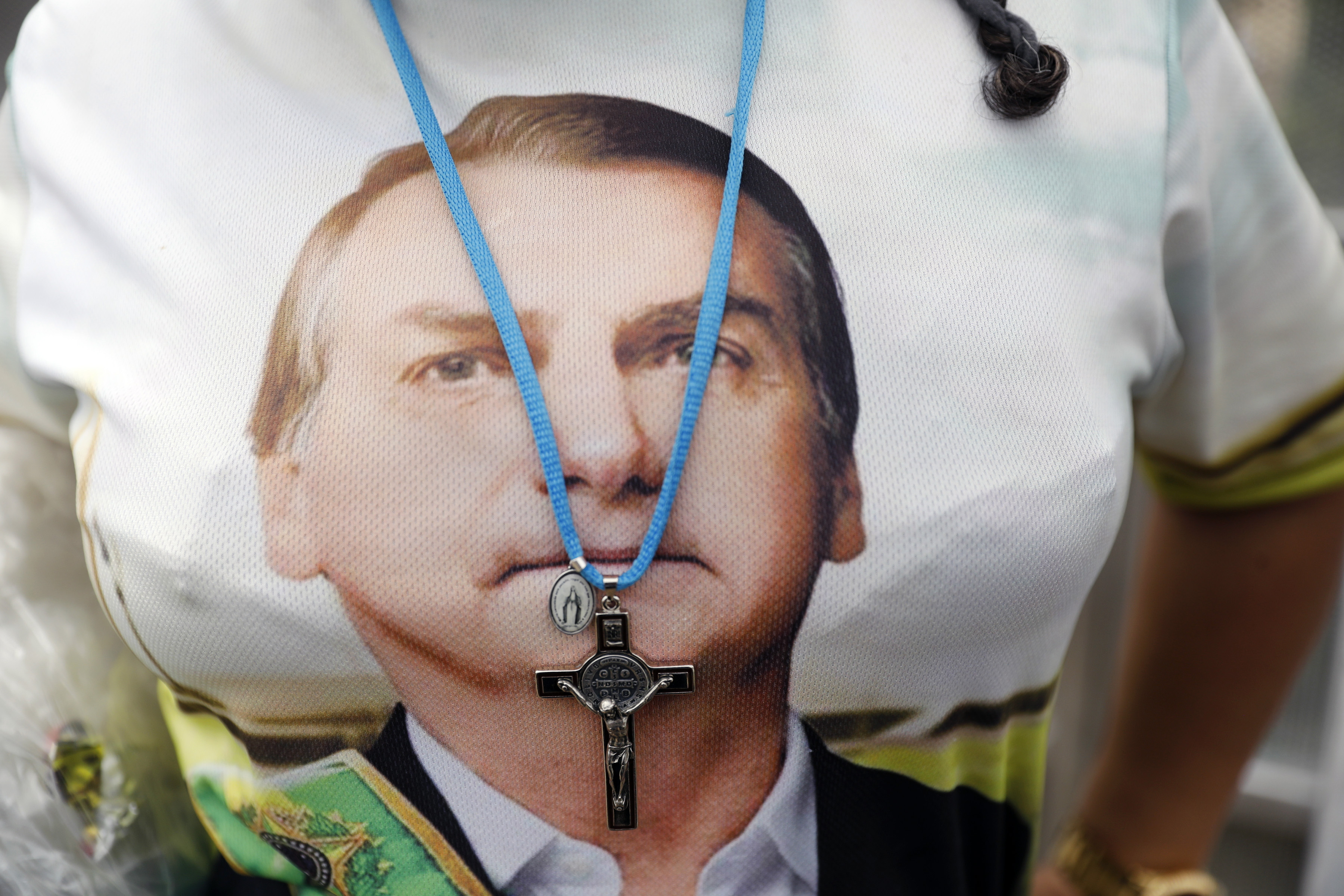Graciano is part of the group that thinks “the establishment” acted on behalf of Lula.
“I respect the ideas of everybody, but I believe that there was a scheme (to free Lula and make him win the election). That was the only way of beating Bolsonaro,” he said.
A supporter of Brazil’s President Jair Bolsonaro wears a crucifix necklace over a shirt with Bolsonaro’s likeness prior to Bolsonaro’s inauguration, in Brasilia, Brazil, on Jan. 1, 2019. (AP Photo/Silvia Izquierdo)
Graciano also thinks the churches are strong enough now to avoid persecution in any regime, but he fears the left may advance legislation to curtail Christians’ rights.
“We hope that the evangelical Congress members we elected defend our rights and keep faithful to sound doctrine,” he said.
More than 100 members of the Chamber of Deputies — 20% of the total in the lower house of Congress — are part of the powerful evangelical bloc, which is expected to strongly oppose Lula’s administration.
One of its members is congressman Marco Feliciano, a famous evangelical pastor and politician in Brazil and a strong Bolsonaro ally.
“We, observant Christians who were side by side with President Bolsonaro, were not motivated by political factors, but by ideological ones, like the Judeo-Christian customs, the respect to property and, more important, the protection to traditional family and to life since conception,” he told RNS, adding that such values “are nonnegotiable.”
Feliciano rejects any notion that the evangelical bloc of Congress would cooperate with Lula’s administration.
“Those who are close to Lula are Christians fabricated in the Soviet Union who deny traditional values. They want a totalitarian regime in soft colors and a ‘god’ moldable to their interests,” Feliciano said.
Pastor Romi Bencke, who heads the National Council of Christian Churches, believes Brazil is in a dangerous moment and hopes religious institutions understand the severity of the situation and will unify to take anti-violence measures.
“A strong attitude is needed to reaffirm Christian principles and call out the ministers who have been accompanying those extremist groups. Otherwise, they will maintain their legitimacy,” Bencke said.
For Priscilla Ribeiro, that will require something of a reeducation.
“The far right has employed a rhetoric of morality to persuade those people. We have to emphasize social care and solidarity in our dialogue with them,” she concluded.
This article originally appeared here.












